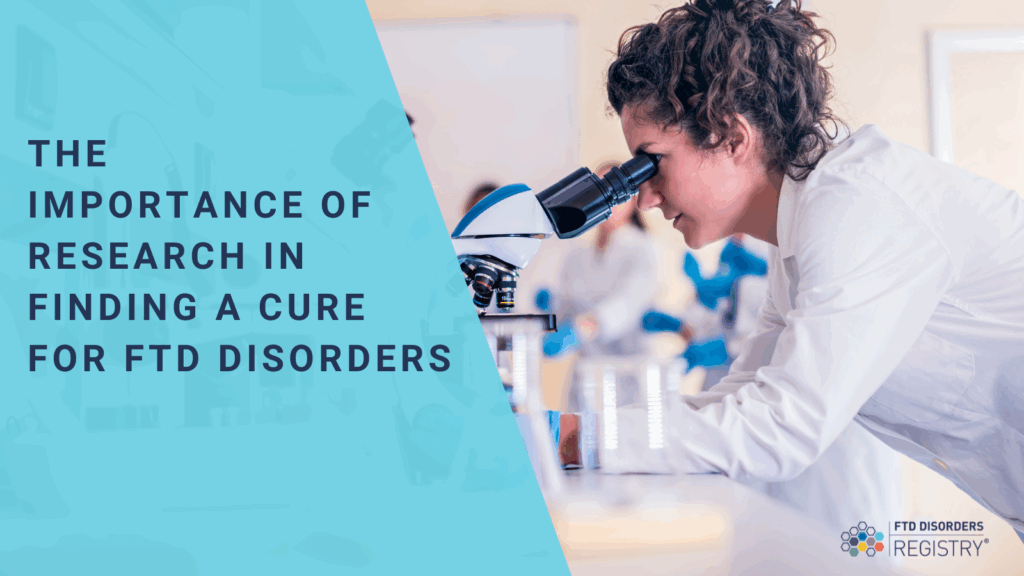PRESS & NEWS
The Importance of Research in Finding a Cure for FTD Disorders

Research is the key to unlocking treatments and, ultimately, a cure for frontotemporal degeneration..
Frontotemporal degeneration (FTD) is one of the most common forms of dementia in people under the age of 60, yet it remains widely misunderstood. Unlike Alzheimer’s disease, which affects memory first, FTD often changes behavior, language, or movement – causing confusion, misdiagnosis, and heartbreak for families. While there are currently no treatments that can slow or stop the progression of FTD, research is paving the way toward a future where answers – and cures – are possible.
Why Research Matters
Every discovery brings us closer to effective treatments. Researchers studying FTD disorders are unraveling how genetic mutations, abnormal proteins, and changes in brain circuits contribute to FTD disorders. By understanding the biology behind FTD, scientists can identify new targets for drugs, develop biomarkers that allow earlier and more accurate diagnosis, and create clinical trials designed specifically for this rare and complex condition.
Learning From Families and Patients
FTD research is not just about what happens in the lab. It also depends on the people living with FTD and their loved ones. By participating in research studies, sharing their experiences, and joining registries, families provide essential data that helps scientists see the bigger picture. Each person’s story adds to our collective understanding and accelerates progress.
The Ripple Effect of FTD Research
The benefits of FTD research extend far beyond this one diagnosis. Because FTD overlaps with other neurodegenerative disorders, discoveries made here may also unlock clues to conditions like ALS and Alzheimer’s. By investing in FTD research, we are helping to build knowledge that could transform dementia care across the board.
Hope for the Future
FTD is devastating, but research brings hope. Already, clinical trials are underway for therapies that aim to target the underlying biology of FTD, not just the symptoms. Progress may not be immediate, but with every study, every data point, and every participant, the future grows brighter.
How You Can Help
- Participate in research: Joining a study or the FTD Disorders Registry contributes valuable data.
- Raise awareness: Share information about FTD so others understand the need for research.
- Support funding: Advocacy help ensure that research continues to move forward.
Finding a cure for FTD will take time, collaboration, and persistence, but it is possible. Research is the key to unlocking answers, and together, we can move toward a future free from FTD.
Together we can find a cure for ftd
The FTD Disorders Registry is a powerful tool in the movement to create therapies and find a cure. Together we can help change the course of the disease and put an end to FTD.
Your privacy is important! We promise to protect it. We will not share your contact information.



